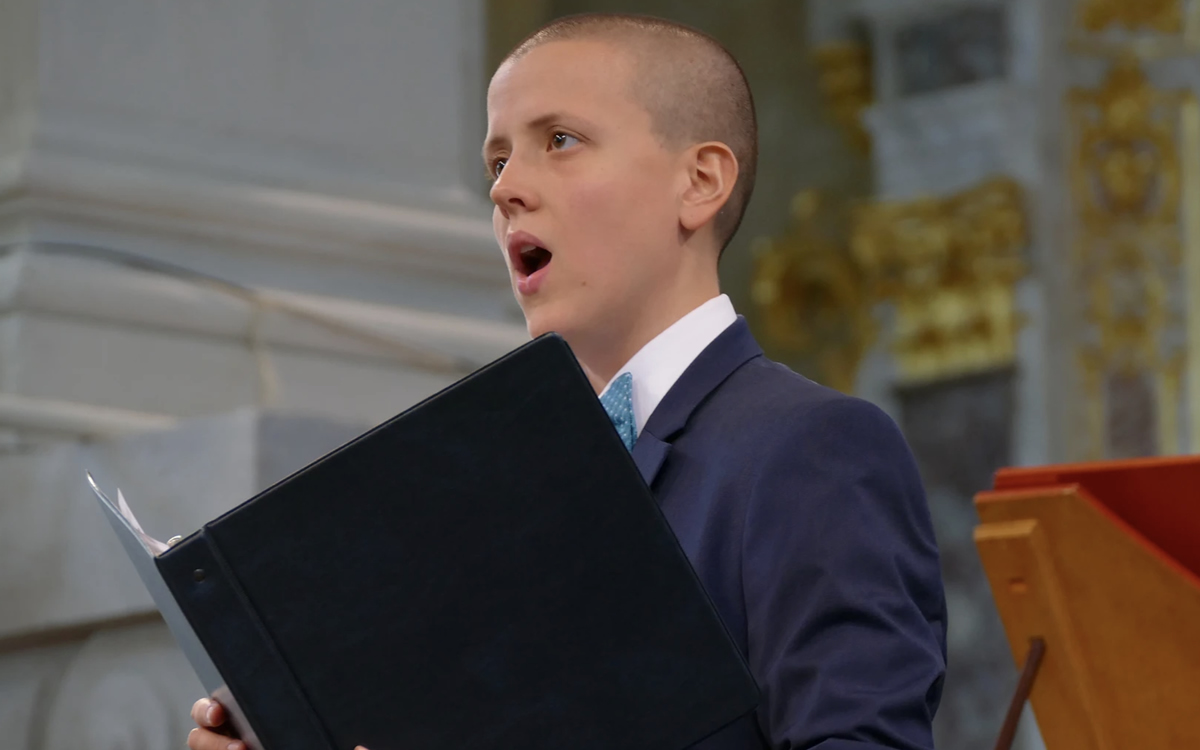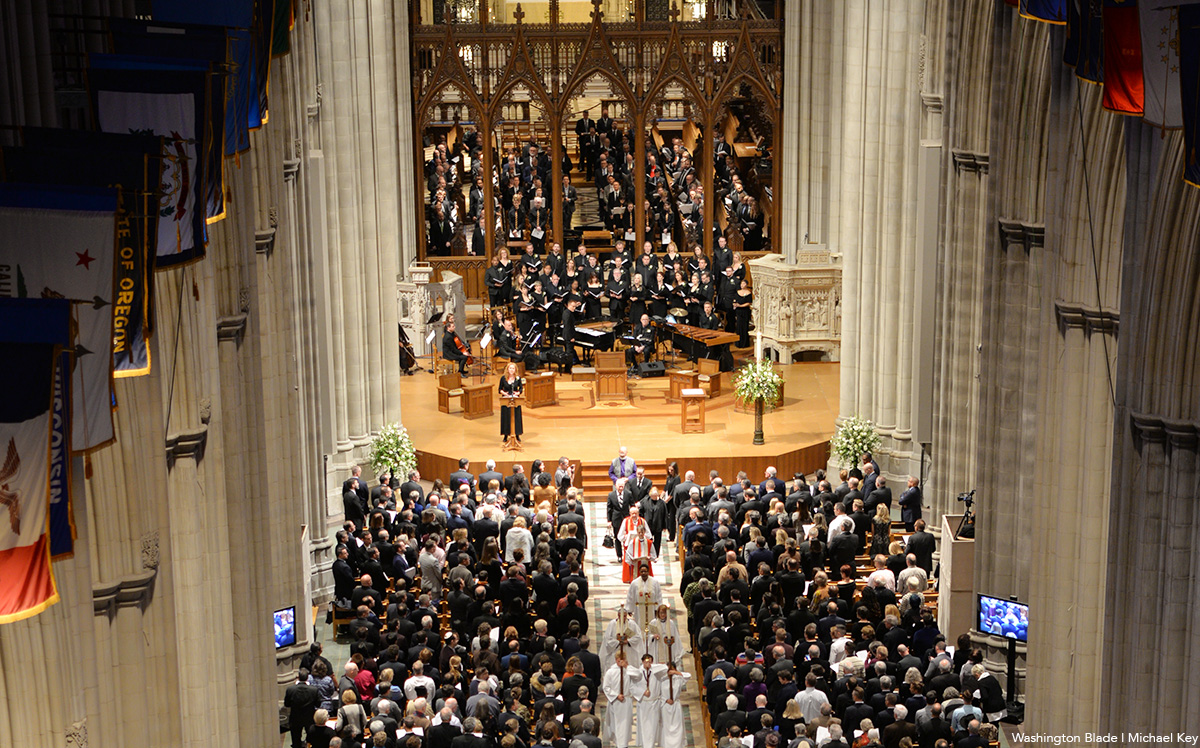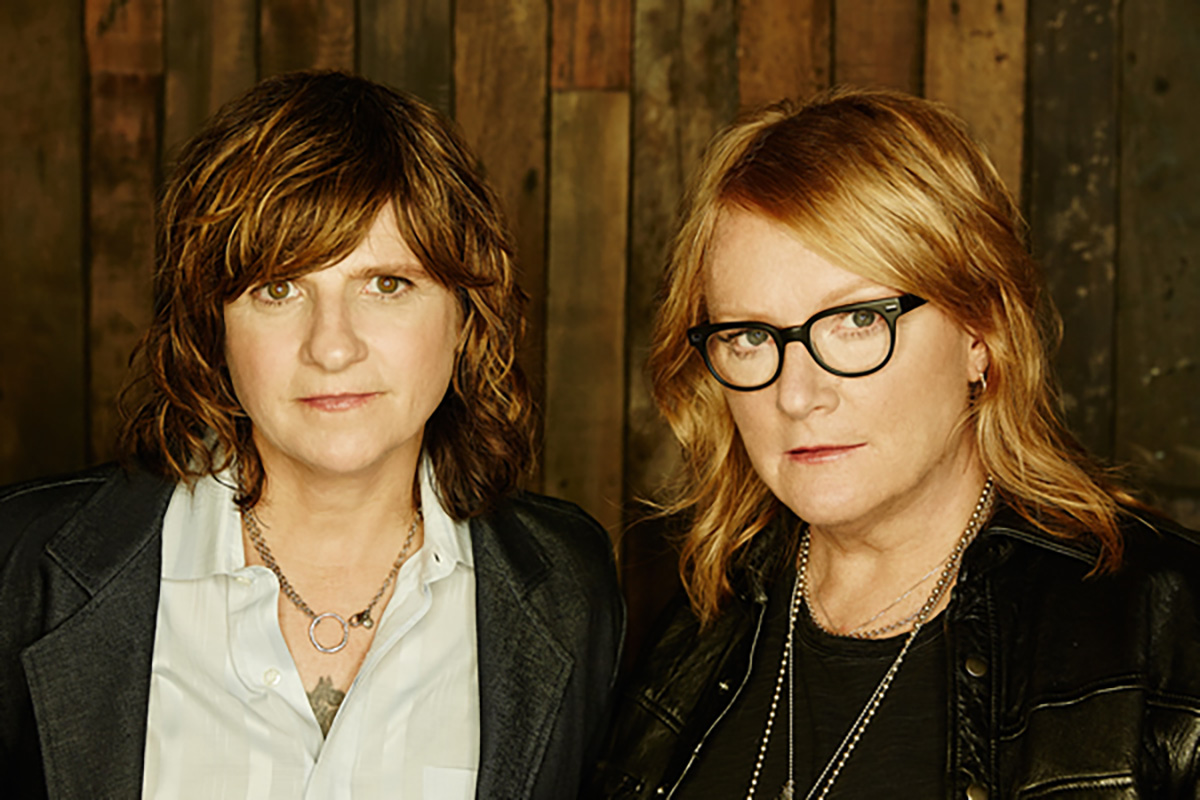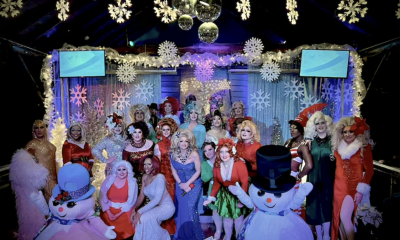Music & Concerts
Trans soprano leads glorious 18th century ‘Christmas Oratorio’
Misgivings about fitting into music world prove unwarranted

Washington Bach Consort presents
Bach’s Christmas Oratorio
Saturday Dec. 10 at 7 p.m.
Music Center at Strathmore
5301 Tuckerman Lane
North Bethesda, Md.
$25 – $89
Strathmore.org
When it comes to opera, Elijah McCormack, 28, is typically cast as children. The talented trans male soprano looks young and sings high, so outside of an educational setting where he’s played adult parts, playing extreme youths has become a sort of musical niche.
“It would be really cool to do a baroque opera and actually sing the primary male lead,” he opines good naturedly before avowing a passion for both opera and his other work – singing sacred music as a grownup at far-flung concerts and festivals.
On Saturday, McCormack joins the Washington Bach Consort at Strathmore as the soprano soloist in Bach’s Christmas Oratorio, a glorious 18th century Baroque telling of the Nativity, sometimes billed as Germany’s “seasonal equivalent to the English-speaking world’s “Messiah.”
“The oratorio is lovely. There are two soprano arias: one is bouncy and exciting and the other meditative. I like them both,” he says.
While this is his first time performing at Strathmore, he’s sung with the Washington Bach Consort before. The consort’s artistic director Dana Marsh met McCormack at Indiana University’s Historical Performance Institute (where Marsh is a professor and McCormack graduated in 2019 with a master’s of music) In recent years, Marsh has invited him to sing with the consort as both soloist and ensemble member. McCormack cites Marsh as a formative influence and great help.
McCormack grew up in Connecticut (where he’s currently based) surrounded by classical music. In addition to a lawyer father passionate about the Romantics (Mahler, Strauss, Wagner), there were many choir practices and performances at the local Episcopalian church, and some pre-transition musical theater parts in high school including Grandma Tzeitel in “Fiddler on the Roof.”
“I liked musical theater; it didn’t like me,” he says wryly.
During his undergrad years at Skidmore, a liberal arts college in upstate New York, McCormack was a studio art major with a concentration in painting who did loads of singing too. Still, as a trans male soprano, he wasn’t sure there would be a place for him in the professional musical performance world.
In 2016, near the end of his senior year, something rare and wonderful happened. Skidmore uncharacteristically staged a fully produced Baroque opera, “Serse” by Handel, and McCormack was cast as the secondary male lead, a role originally written for a castrato: “That experience of singing was really affirming for me. I suddenly knew there were roles for me and music that suited my voice.”
He had realized he was trans at 17 and transitioned socially at Skidmore. “For me personally, it was a fairly uncomfortable way for me to spend my first years in college. At one point, I’d thought about hormone therapy and figured that “Serse” would be the last hurrah of my soprano voice. But because I loved singing soprano so much, I didn’t do it.”
Other changes were made without regret, however. He credits top surgery in 2014 with improving both his general quality of life as well as his singing abilities. No longer having to bind his chest, like many trans men and trans masculine people do, his singing markedly improved.
Also, misgivings about fitting into the music world have proved unwarranted.
“Always, walking into an audition room is the hardest part. I tend to think they know I’m queer but maybe they’re unsure exactly what flavor of the rainbow I am,” says the prize-winning singer. “So far, being visibly gender nonconforming, especially in a traditional space like you typically find with classical music, hasn’t elicited negative reactions. People don’t understand everything, but I’d say the world is catching up in terms of how to talk to and about people of various gender experiences.”
At over two hours is Bach’s Christmas Oratorio too heavy for the casual listener?
“Depends on attention span,” he says. “But as things go, it’s accessible — fun, joyful, and a good time. And it’s not one of the usual holiday things you’re likely to have already seen a million times.”
Music & Concerts
Red, White, and Beyoncé: Queen Bey takes Cowboy Carter to D.C. for the Fourth of July
The legendary music icon performed on July 4 and 7 to a nearly sold-out Northwest Stadium.

Just in time for Independence Day, Beyoncé lit up Landover’s Commanders Field (formerly FedEx Field) with fireworks and fiery patriotism, bringing her deeply moving and genre-defying “Cowboy Carter” tour to the Washington, D.C. area.
The tour, which takes the global icon across nine cities in support of her chart-topping and Grammy-winning country album “Cowboy Carter,” landed in Prince George’s County, Maryland, over the Fourth of July weekend. From the moment Beyoncé stepped on stage, it was clear this was more than just a concert — it was a reclamation.
Drawing from classic Americana, sharp political commentary, and a reimagined vision of country music, the show served as a powerful reminder of how Black Americans — especially Black women — have long been overlooked in spaces they helped create. “Cowboy Carter” released in March 2024, is the second act in Beyoncé’s genre-traversing trilogy. With it, she became the first Black woman to win a Grammy for Best Country Album and also took home the coveted Album of the Year.
The record examines the Black American experience through the lens of country music, grappling with the tension between the mythology of the American Dream and the lived realities of those historically excluded from it. That theme comes alive in the show’s opening number, “American Requiem,” where Beyoncé sings:
“Said I wouldn’t saddle up, but
If that ain’t country, tell me, what is?
Plant my bare feet on solid ground for years
They don’t, don’t know how hard I had to fight for this
When I sing my song…”
Throughout the performance, Beyoncé incorporated arresting visuals: Black cowboys on horseback, vintage American iconography, and Fox News clips criticizing her genre shift — all woven together with voiceovers from country legends like Dolly Parton and Willie Nelson. The result was a multimedia masterclass in storytelling and subversion.
The “Cowboy Carter” tour has been a social media sensation for weeks, with fans scrambling for tickets, curating elaborate “cowboy couture” outfits, and tailgating under the summer sun. At Commanders Field, thousands waited in long lines for exclusive merch and even longer ones to enter the stadium — a pilgrimage that, for many, felt more like attending church than a concert.
One group out in full force for the concert was Black queer men — some rocking “denim on denim on denim on denim,” while others opted for more polished Cowboy Couture looks. The celebration of Black identity within Americana was ever-present, making the concert feel like the world’s biggest gay country-western club.
A standout moment of the night was the appearance of Beyoncé’s 13-year-old daughter, Blue Ivy Carter. Commanding the stage with poise and power, she matched the intensity and choreography of her mother and the professional dancers — a remarkable feat for someone her age and a clear sign that the Carter legacy continues to shine.
It’s been nearly two decades since Beyoncé and Destiny’s Child parted ways, and since then, she’s more than lived up to her title as the voice of a generation. With “Cowboy Carter,” she’s not just making music — she’s rewriting history and reclaiming the space Black artists have always deserved in the country canon.
Music & Concerts
Berkshire Choral to commemorate Matthew Shepard’s life
Concert held at Washington National Cathedral

Berkshire Choral International will present a concert performance of composer Craig Hella Johnson’s fusion oratorio “Considering Matthew Shepard” on Friday, July 11, 2025 at 7:30 p.m. at the Washington National Cathedral.
The program will be guest conducted by Dr. Jeffrey Benson, a native of the DMV who currently serves as Director of Choral Activities at San José State University. The concert is a partial benefit for the Matthew Shepard Foundation. Notably, Matthew’s remains are interred at the National Cathedral and his parents, Dennis and Judy, will give opening remarks at the performance.
Tickets are $20 – $65, and 50% of ticket proceeds will be donated to the Matthew Shepard Foundation. Tickets are only available online at berkshirechoral.org.
Music & Concerts
Indigo Girls coming to Capital One Hall
Stars take center stage alongside Fairfax Symphony

Capital One Center will host “The Indigo Girls with the Fairfax Symphony Orchestra” on Thursday, June 19 and Friday, June 20 at 8 p.m. at Capital One Hall.
The Grammy Award-winning folk and pop stars will take center stage alongside the Fairfax Symphony, conducted by Jason Seber. The concerts feature orchestrations of iconic hits such as “Power of Two,” “Get Out The Map,” “Least Complicated,” “Ghost,” “Kid Fears,” “Galileo,” “Closer to Fine,” and many more.
Tickets are available on Ticketmaster or in person at Capital One Hall the nights of the concerts.
-

 Federal Government2 days ago
Federal Government2 days agoTreasury Department has a gay secretary but LGBTQ staff are under siege
-

 Virginia3 days ago
Virginia3 days agoDefying trends, new LGBTQ center opens in rural Winchester, Va.
-

 District of Columbia2 days ago
District of Columbia2 days agoGay GOP group hosts Ernst, 3 House members — all of whom oppose Equality Act
-

 District of Columbia2 days ago
District of Columbia2 days agoD.C. police seek public’s help in July 5 murder of trans woman












